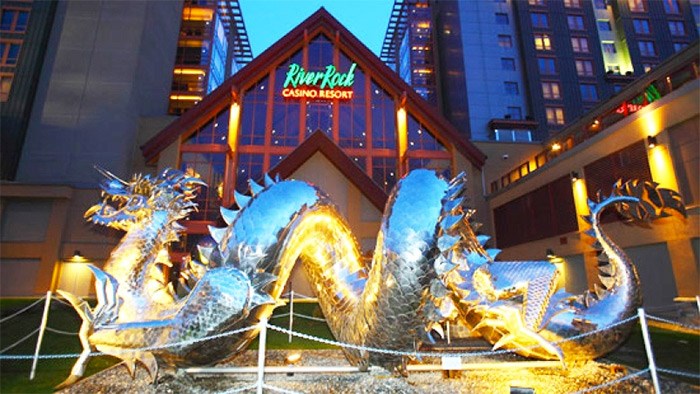 River Rock Casino and Resort
River Rock Casino and Resort
High-rolling VIP gamblers from China are suspected of walking into River Rock Casino and Resort and laying down buy-ins — sometimes in excess of $500,000 and much of which is unsourced — to wash their proceeds of crime, according to an independent review of anti-money laundering practices in B.C.
The previously suppressed report on money laundering at the Rock, by accounting firm MNP, was released to media Friday by Attorney General David Eby, following a Vancouver Sun investigation.
“I received a series of briefings that caused me to believe that our province could do more to combat money laundering at B.C. casinos,” said Eby, who will now hire an independent review of anti-money laundering practices after MNP cited concerns as to how B.C. Lottery Corporation has been tackling the matter.
In one month (July 2015), the casino accepted $13.5 million in $20 bills alone.
“River Rock staff [members] have fostered a culture accepting of large bulk cash transactions.
“The issue of casinos, [River Rock] in particular, accepting large volumes of cash has now been a growing issue in the province for a number of years,” noted the report.
Pertaining to the irregular cash transactions, BCLC said it will await instruction from Gaming Policy Enforcement Branch (GPEB), the provincial regulator, and the Ministry of Finance as to how it may reform in the wake of such revelations.
Richmond North Centre MLA Teresa Wat, whose riding includes the casino, did not respond to Richmond News inquiries but former BC Liberal Finance Minister Mike de Jong, told the Sun the July 2016 report was kept confidential for investigative purposes.
Meanwhile, casino operator Great Canadian Gaming Corporation said in a statement it complies with present regulations set forth by the GPEB and FINTRAC (Financial Transactions and Reports Analysis Centre of Canada) and welcomes new regulations.
Nevertheless, MNP — which notes it’s difficult for casinos to source cash from Chinese nationals — describes holes in the system.
MNP Interviews with casino and BCLC staff members confirmed there are “reasonable grounds to suspect money laundering” via unsourced funds, which are largely coming from wealthy non-residents and local business persons with interests in Vancouver and China.
“While the patron may be bona fide, the unsourced cash being accepted by the casino may be associated with criminal activity and poses significant regulatory, business and reputational risk,” noted MNP.
And the casino itself was found by MNP, during a two-year review period (2013-2015), to have filed relatively few suspicious transactions (1,194) compared to the number of large cash transaction records (41,187).
Casino workers may be “desensitized” to the anti-money laundering regime and communication between managers and VIP hosts, who handle the large cash transactions, was found to be problematic. MNP found 36 “high risk” players identified by law enforcement as also being on the Top 100 list of players by cash volume.
MNP stated it would be useful for BCLC anti-money laundering online training to be in the Chinese language (and not English) of “the high risk exposed employees,” however BCLC said it would not change its language requirements, as to avoid confusion.
The report notes there is “inherent conflict” between the regulators, who seek to ensure the integrity of gaming, BCLC, which rakes in most of the profits for government coffers and casinos, which work on commission.
Richmond residents reap massive property tax savings as the City of Richmond receives 10 per cent of annual, net profits from the River Rock. Over the past 10 years, the city has received $153.7 million. If the casino’s $17.6 million cheque for 2016 was deducted, property taxes would soar an estimated 8.8 per cent. At one point, in 2015, council had to review how it distributes the money because there was so much of it.
But it comes at a cost, according to the International Monetary Fund, which has cited Vancouver as being at the crosshairs of money laundering and real estate speculation.
“There are cases of Chinese officials laundering the proceeds of crime through the real estate sector, particularly in Vancouver, and the Chinese government has listed Canada as a country that it wishes to target for recovering the proceeds of Chinese corruption,” noted a 2016 IMF report.
Read more from the Richmond News


